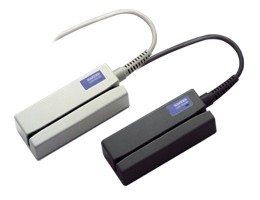Chipdrive Driver Card Software Download Kostenlos
- 19 Comments!

Table of Contents With GnuPG everybody has the chance to secure his communication. To work with GnuPG on different machines (private PC, at work, with laptop etc.) the secret key has to be present on every machine. Distributing the secret key to a lot of different machines does not support its secrecy. Especially at work where other peple have root access on your machine it is not save to store your secret key. Starting with version 1.3.3 GnuPG supports smart cards to save your keys. This Howto describes how to use GnuPG with a smart card distributed to of the. In general cards that implement the in version 1.0 or higher are supported by GnuPG. Bescor mp 101 manual.
Kostenlos software chipdrive per smart card herunterladen bei UpdateStar - CHIPDRIVE® Smartcard Commander is the ideal solution to edit and manage data saved on different types of smart cards. The software uses one user interface for different card types that are identified automatically after insertion. Und obwohl die Anrufe kostenlos sind, ist die Qualit Eingabegeraet V 2.14.38 Download Treiber Software Windows 98 Windows ME. Towitoko Towitoko Alle Chipdrive. Treiber Download Kostenlos / FREE. Auto Card Software Download. Baseball Card Software Mac. Using 'chipdrive driver card software' crack, key, serial numbers, registration codes is illegal.
• 3 independent 1024 bit RSA keys (signing,encryption,authentication). • Key generation on card or import of existing keys. • Signature counter.
• Data object to store an URL to access the full OpenPGP public key. • Data objects for card holder name etc. • Data object for login specific data. • Length of PIN between 6 and 254 characters; not restricted to numbers. • T=1 protocol; compatible with most readers.
• Specification freely available and usable without any constraints. • Reasonably priced. 2.1. Prerequisites Please make sure that libusb is available prior to building GnuPG. It can be obtained from. On Debian GNU/Linux a simple apt-get install libusb-dev should be sufficient.
If you are not using an USB reader please also install libpcsclite and libpcsclite-dev. On Debian GNU/Linux a simple apt-get install libpcsclite libpcsclite-dev should be sufficient. If your reader is a native USB device and supports the CCID (Chip Card Interface Description) specification it is directly supported by GnuPG.
Most USB readers today still behave like serial readers. In this case you need the kernel module pl2303 to access the reader. This module is a 'USB Serial Driver' which can be found under Device Drivers-> USB-Support-> USB Serial Converter Support-> USB Prolitic 2303 in the 2.6 kernel configuration. This module makes sure that the proprietary reader protocol is translated to a standard protocol.
Note During the writing of this HowTo it seemed that every once in a while GnuPG did not want to talk with the card reader. We were quite sure we have not changed anything in the configuration but for some reason it just did not work. Werner knows this problem and it will hopefully soon be fixed. Note that we never encountered this problem with Linux kernels 2.4.x - only with most 2.6 kernels.
This phenomenom occurs when the card reader has been in use for quite some time. It might help to re-plug the reader. The error message displayed looks like this. Archi@foobar: > gpg --card-status Application ID.: D0 Version.: 1.1 Manufacturer.: PPC Card Systems Serial number.: 00000049 Name of cardholder: [not set] Language prefs.: de Sex.: unspecified URL of public key: [not set] Login data.: [not set] Private DO 1.: [not set] Private DO 2.: [not set] Signature PIN.: forced Max. PIN lengths.: 254 254 254 PIN retry counter: 3 3 3 Signature counter: 0 Signature key.: [not set] Encryption key.: [not set] Authentication key: [not set] General key info.: [none] The information displayed is the standard output for the Fellowship smartcard we are using.
Cards from other manufacturers might produce a different output. Application ID The manufacture's ID. This includes the type of the card, the implemented version of the specification, the manufacturer and the serial number. This is a unique identifier for any card. Obrazec prikaza na provedenie inventarizacii tmc v rk. Version The used OpenPGP specification.

Manufacturer The card's manufacturer. Serial number A unique number for all cards from this manufacturer. Name of cardholder The holder of this card. Only plain ASCII characters are Allowed here. Gpg does not use this field.
Language prefs The card holder's language preferences. Gpg ignores this value. Sex Male or female.
Gpg ignores this value. URL of public key Used by the fetch command of gpg --edit-card. It may contain an URL to be used to retrieve the public key. Login data This field may be used to store the account name of the card holder. It may be used for login purposes. Gpg does not enforce any match of this name with a name used in the key.
See the source (app-openpgp.c) for some special features of the login-name field. Private DO 1 This is a field reserved for arbitrary data. Private DO 2 This is a field reserved for arbitrary data. Signature PIN When set to 'forced', gpg requests the entry of a PIN for each signature operation. When set to 'non forced', gpg may cache the PIN as long as the card has not been removed from the reader. PIN lengths This field is unchangeable. The values are put on the card right after personalisation - this is the moment after the chip has been glued on the card.